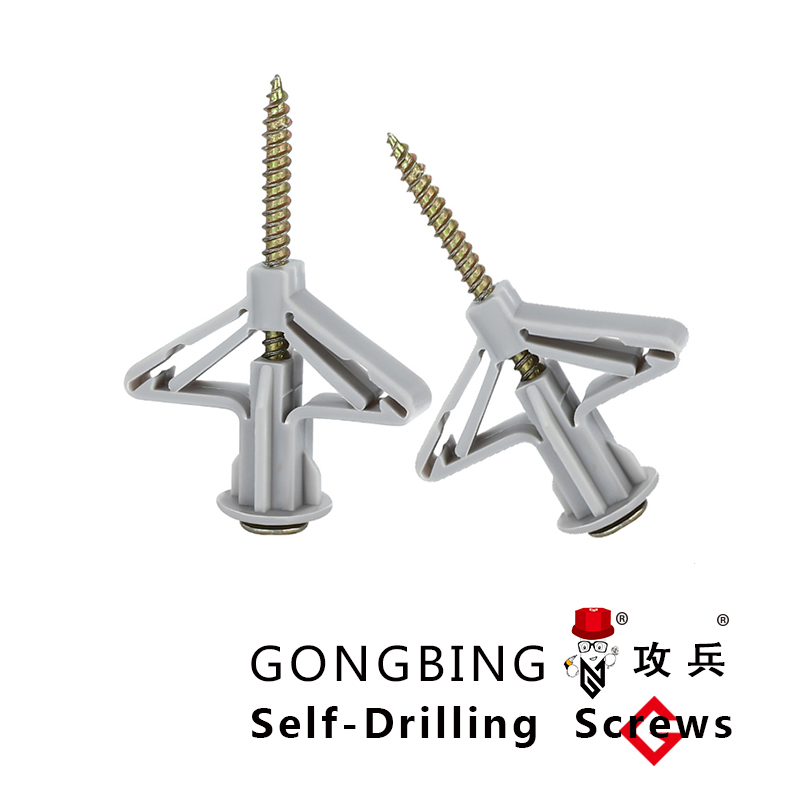chipboard screw factory
Chipboard Screw Factory Innovations in Fastening Solutions
In the world of construction and furniture manufacturing, chipboard screws play a pivotal role. As a specialized type of screw designed for use with particle board, MDF, and similar materials, they offer exceptional performance, durability, and reliability. A chipboard screw factory focuses on the production of these essential fasteners, combining advanced technology and skilled craftsmanship to meet the needs of various industries. In this article, we will explore the processes involved in manufacturing chipboard screws, the qualities that make them invaluable, and the advancements in the industry.
Understanding Chipboard Screws
Chipboard screws are typically made of steel, which is then treated for additional strength and corrosion resistance. They are characterized by their coarse threads and specialized head designs, which allow them to grip the material securely without damaging it. Their unique configuration makes them ideal for soft and brittle materials like chipboard, which can easily splinter or crack under regular screws.
The demand for chipboard screws has significantly increased due to the rise of flat-pack furniture and modular construction. These screws are widely used to assemble furniture, cabinets, and various fixtures, providing the necessary strength for sustaining heavy loads. Their ability to hold materials together without the need for pre-drilling further enhances their efficiency, making them a popular choice among manufacturers and DIY enthusiasts alike.
Manufacturing Processes in a Chipboard Screw Factory
The manufacturing process in a chipboard screw factory is complex and requires precision at every step. It typically begins with the selection of high-quality raw materials, usually in the form of wire rods. These rods are first fed into a cutting machine that sizes them appropriately.
Following the cutting stage, the wire undergoes a process called heading, where the screw heads are formed through a series of mechanical operations. This is followed by threading, where the coarse threads critical for chipboard screws are rolled into the body of the screw. The thread design is crucial, as it determines how well the screw will grip in the chipboard material.
chipboard screw factory

After threading, the screws may undergo heat treatment to enhance their hardness and tensile strength. This process involves heating the screws to high temperatures and then cooling them rapidly, which changes their internal structure to become more robust. Finally, finishing processes like coating or plating are applied to improve corrosion resistance and provide an aesthetically pleasing appearance.
Quality Control and Testing
Quality control is integral to the manufacturing process in a chipboard screw factory. Rigorous testing is carried out to ensure that every batch of screws meets industry standards. Tests for tensile strength, shear resistance, and corrosion resistance are commonplace. Factories often use automated systems to monitor the production line, allowing for real-time adjustments to maintain quality.
Moreover, with the growing emphasis on sustainability, many factories are now adopting eco-friendly practices. This includes using recycled materials and minimizing waste during production. The integration of advanced manufacturing technologies, such as computer-aided design (CAD) and robotics, has also streamlined production processes, increasing efficiency and reducing human error.
The Future of Chipboard Screw Manufacturing
The future of chipboard screw manufacturing looks promising, with ongoing innovations shaping the industry. The introduction of smart manufacturing practices and Industry 4.0 concepts may lead to greater automation and data-driven decision-making.
Additionally, as the construction industry increasingly focuses on sustainability, manufacturers are likely to explore biodegradable or recyclable fasteners. Enhanced material science may also yield screws with even better performance characteristics, expanding their applications beyond traditional uses.
In conclusion, chipboard screw factories are at the forefront of producing essential fasteners that have become staples in modern construction and furniture design. With an unwavering focus on innovation and quality, these factories continue to adapt to the evolving demands of the industry, promising a bright future for fastening solutions.
-
Weatherproof Plastic Expansion Anchors for OutdoorNewsJun.06,2025
-
Sustainability in the Supply Chain: Eco-Friendly TEK Screws ProductionNewsJun.06,2025
-
Load-Bearing Capacity of External Insulation FixingsNewsJun.06,2025
-
Double Head Bolts: Enhancing Efficiency in Industrial MachineryNewsJun.06,2025
-
Corrosion Resistance in Chipboard Screws: Coatings for Wholesale DurabilityNewsJun.06,2025
-
Butterfly Toggle Bolts : Enhancing Structural ResilienceNewsJun.06,2025
